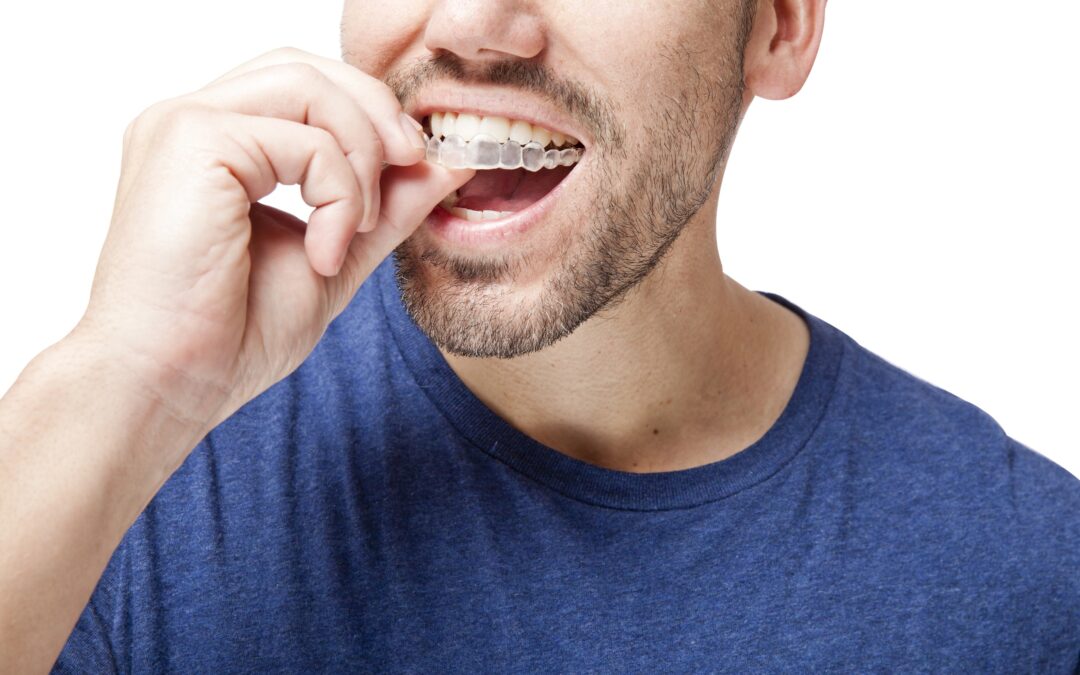Sleep bruxism is a mysterious and really uncomfortable condition, one that causes you to clench your jaw and grind your teeth as you sleep. Thankfully, though, getting some protection and relief is simple. Wearing a mouthguard from orthodontics in Innisfil can help protect you from the painful and damaging effects of sleep bruxism.
What is sleep bruxism?
Many people are completely unaware that they suffer from sleep bruxism. For many people, the first time they find out about the condition is when told about the sounds of grinding teeth heard by a sleeping partner. Being diagnosed with sleep bruxism by a doctor, dentist or orthodontist near you can finally explain a wide range of symptoms that people often experience. The symptoms of sleep bruxism include:
- Suffering from a dull headache when waking up
- Waking with a sore or stiff jaw
- Waking with unexplained facial pain or apparent ear aches
- Waking up feeling unrefreshed and suffering interrupted sleep
- Suffering damage to teeth and dental work
- Increased tooth sensitivity and pain
- Suffering biting wounds to the inside of your cheeks
Many of these symptoms have a lot in common with temporomandibular joint dysfunction and with sleep apnea, two other conditions that mouthguards can help with.
What are the causes and risk factors for sleep bruxism?
While the precise causes of sleep bruxism are not completely understood, there are several factors associated with an increased risk of sleep bruxism:
- Stress and emotions such as anxiety, anger and frustration
- Having a hyperactive, aggressive or competitive personality
- Bruxism is most common in young children and often disappears as children grown up
- Some psychiatric medications and antidepressants can cause sleep bruxism as a side effect
- Tobacco use, recreational drug use and consumption of alcohol and caffeine
- Genetic influences appears to increase the risk of bruxism, which appears to run in families
- Experiencing other medical conditions such as Parkinson’s disease, epilepsy, night terrors, sleep apnea, attention-deficit/hyperactivity disorder, dementia and gastroesophageal reflux disorder
How can you protect yourself from sleep bruxism?
An orthodontist near you can protect you from the painful and potentially harmful effects of sleep bruxism by providing you with a customized mouthguard to wear as you sleep. Wearing mouthguards in Innisfil — sometimes referred to as night guards, dental guards, nocturnal bite plates or bite splints — imposes a barrier between the teeth in your upper and lower jaws.
The mouthguard will place a cushion between your teeth and ease some of the tension imposed on your jaw as you sleep. Obtaining a mouthguard near you is often accompanied by making small adjustments to the biting surfaces of your teeth to change the way that they meet during sleep. There are several types of mouthguards available from an orthodontist in Innisfil.
Soft night guards are the most comfortable option and are typically the easiest to get used to wearing. On the other hand, some people have a tendency to chew a soft night guard. Soft night guards are less durable and have a shorter lifespan than other alternatives.
Dual laminate night guards have a hard outer surface and material on the inside of the guards. Dual laminate guards can withstand moderately severe clenching and grinding and last longer than soft night guards. On the other hand, a dual laminate night guard typically takes longer to become accustomed to, in part because they’re usually made from thicker material.
Hard night guards are appropriate for the most extreme cases of sleep bruxism (in addition to helping to treat TMJ disorder). Hard night guards made from rigid acrylic are the most durable option and effectively prevent your teeth from shifting while also protecting you from the symptoms of sleep bruxism. Hard night guards tend to be thicker than soft options and take the longest time to become accustomed to.
If you experience any of the symptoms of or risk factors for sleep bruxism, ask your dentist to screen you for the condition. If you’re at risk of harm from the condition, ask your dentist to provide you with a custom mouthguard to protect your teeth, comfort and health.


